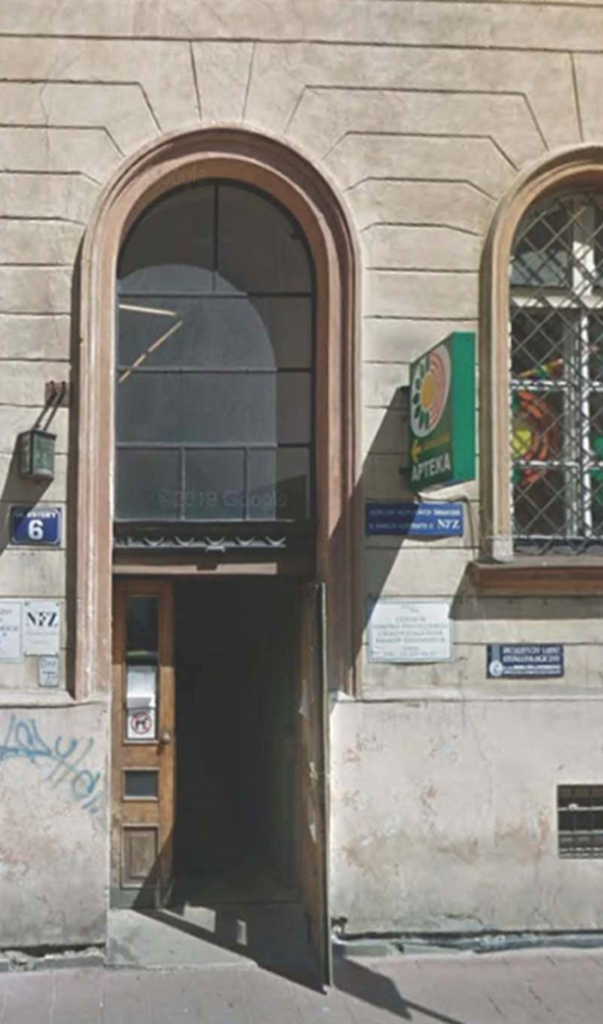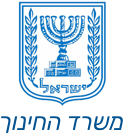Longings for the City of Krakow
By: Yaakov Rosenfeld
Eighty years ago, little by little, the horrible news of what was happening to the Jewish communities in Europe began to reach Israel.
As strange as this may seem, the wider world did not know what was going on in Poland during the years when millions of Jews were being killed there.
And on that bitter day, when the news of the destruction of the Krakow community reached Jerusalem, Rabbi Moshe Mordechai Biderman, the Rebbe of Lelov, fell ill from grief, and he lay confined to his bed with his whole body boiling up with a fever.
He lay down and wept bitterly over the bitter end of the city of Krakow, where Rabbi Moshe Mordechai spent many years in his youth, and which he carried with love and longing in his heart until he was old. In particular, he cried over the destruction of the old shtiebel (small house or prayer and study) of Radomsk, within whose walls he hid for many years. He lay in bed exhausted, scorching with a high fever, and his whole body was boiling and moaning: “Oy, oy, Radomsker Shtiebel! There were thirty young men there who were knowledgeable in all of Shas (the 6 orders of the Mishna), they could have grown up and become the great men of the next generation.” Rivers of tears flowed non-stop from his eyes.
The residence of his father, Rabbi Shimon Natan Noteh Biderman, in Krakow, was in the old Jewish quarter of Kazimierz, which bore the name of the Polish emperor who allowed the Jews who immigrated to Poland from Germany to settle there – not far from the old shtiebel of the Radomsk chasidim.
The shtiebel was like a home for the sages, chasidim and men of action, a place where the geniuses of the world constantly spent their days and nights. In purity and with effort, they sat on the benches and the sound of Torah and prayer was heard there non-stop.
In the same shtiebel, Rabbi Shimon Natan Noteh studied the Or HaChaim commentary with young men and boys on Friday night, and in the same shtiebel his son, Rabbi Moshe Mordechai slept, and all his days he would talk longingly about the exaltedness that reigned within its walls. In general, he often talked about the geniuses and holy people who crowded the alleys of Krakow and its study halls. In particular, he praised the group of young men who often stayed at his father’s house, they were called “Di Tamir Neekes” (the hidden ones), and this because they were “hidden” and disappeared from the fear of being drafted into the Polish army and would study the Torah day and night.
In prewar Krakow, there were five synagogues of Radomsk chassidim. The synagogue where Rabbi Moshe Mordechai used to work in the midst of the wonderful chassidim, at 15 Ciemna Street, was called the Old Synagogue. It was very close to the synagogue of Rabbi Isaac, Rabbi Yekile’s synagogue, and not far from the Rama rabbi’s synagogue.
Today, the building serves as the Eden Hotel, and there is a small mikva (ritual bath) in its cellar.

The small shtiebel of the Radomsk chassidim on Ciemna Street

The shtiebel building today – Eden Hotel

Ciemna Street – Notice the mezuzah at the entrance
The shtiebel acquired a special charm. Admittedly, it was dark and old, and it was located in a dark side area, unlike the other shtiebels that were located in lively streets, but the worshipers did not want to move from there, because it was the first chasidic shtiebel in Krakow, and also because the Tiferet Shlomo rabbi of Radomsk prayed and held his court there.
At first, Krakow was a mitnaged (anti-chassidic) city, and the Tiferet Shlomo, who used to travel every year to the holy gravesite of Rabbi Elimelech of Lizhensk, would stop on his long journey in the city of Krakow, and this stop founded the warm chasidic atmosphere there.
Every night, according to Rabbi Moshe Mordechai, the elders of the chassidim would sit together with glasses of mead, which was quite cheap. In the summer they sat between Mincha and Maariv prayers and in the winter after Maariv, and hearing them was a kind of otherworldly pleasure.
Jewish Krakow was filled with many thousands of chassidim and men of action, of whom they formed a kind of bridge to past generations, and for Rabbi Moshe Mordechai, who since the dawn of his childhood had been thirsty to hear about the way of righteous people from past generations, this was a golden opportunity to hear first-hand about the figures whose stories and sayings he grew up with. Rabbi Moshe Mordechai was already at that time, eighty years ago, a young prodigy, who was already known in Jerusalem to be able to be examined on the Shas (6 orders of the Mishna) and its commentaries and to be crowned with being a teacher, and even in his exile in Krakow, he was busy with Torah day and night, but he could not give up the talks of the chassidim and men of action in the chassidic rooted Krakow.
And here is one of the stories that Rabbi Moshe Mordechai told from his memories of his sweet days in Krakow, exactly eighty years ago.
Rabbi Moshe Mordechai loved to listen to Rabbi Mendel Kinsker. This is due to his old age and the figures of righteous men of the past who he remembered. For example, he remembered the tzaddik (righteous) Rabbi Hersch of Rymanow, the tzaddik Rabbi Asher of Ropshitz, the Aryeh Devi Ilai (Rabbi Aryeh Leib Lipschutz), and more tzadikim who had already been in the “upper world” for decades. Rabbi Mendel was already very old at that time, ninety years old or more, but his memory was fresh and pleasant stories from ancient times would flow from his mouth on various occasions.
In one of his conversations with Rabbi Mendel, he wanted to tell him a wonderful personal story.
“I was an older man, and I didn’t do well in matchmaking. I didn’t have any money either and in the meantime I was getting older.”
“Once, a bold idea arose in the heart of one of the matchmakers in the city of Krakow. He did not think much and knocked on the door of a well-known gentleman, amongst the wealthy men of Krakow… The rich man, to put it mildly, did not like the idea, and in return for this humiliating offer, he almost kicked the matchmaker out of all the steps to his magnificent house.”
“However, matches, as we know, are from G-d, and apparently in order for this match to take place, this rich man had to lose all of his assets and become destitute, and this is what happened…”
“Very quickly the well-known man lost all his fortune in a difficult matter, and then the hard-working matchmaker’s path was already paved, he didn’t have to work too hard, and the match ended well. This is what is called, basically: ‘the grapes with the grapes’ (an expression for a good match being made). Two poor families matched with each other.”
“I became engaged to the daughter of the previously wealthy man, and the city of Krakow rejoiced and was happy.”
“The wedding day was approaching, and I thought to myself in sorrow, I am poor and wretched and I have nothing to go to the wedding with. I received a good and modest bride as gift from G-d, but she is also poor and has nothing but her dress. How can I come to the wedding?”
“What was left for me to do… I stood in this study hall, praying from the bottom of my heart and shedding tears like water. From there, I left and went to the lottery booth and bought half a lottery ticket, since I didn’t have any money beyond that. The practice in the world at that time was that when a poor man bought half of a lottery, if his ticket won the lottery, he had to make an arrangement with the one who bought the other half, and divide it equally with him.”
“A few days passed, and I went to check the results of the lottery as usual, and here I saw that I won. That is, half of the grand prize is mine, and it was a large amount. I became rich!”
“Now I had to find out who my partner was in this win, and then the unbelievable became clear to me. None other than my bride, she was the one who bought the other half of my lottery ticket!”
Thus, the bride and groom who got engaged as poor and destitute, got married as extremely rich.
Are there any grandchildren of Rabbi Mendel Kinsker, a survivor and refugee of the terrible Holocaust? Who knows.
A few months ago, to mark the eightieth anniversary of the destruction of the Jews of Krakow, I traveled to this city, and I compiled my travel notes especially for Ganzach Kiddush Hashem along with a series of articles, memoirs, documentary episodes, photos, and authentic stories, about the essence of Krakow Jewry. The publication of the series was delayed due to the events in Israel, and now it is time to pay off the debt.
G-d willing, we will publish it here in the sequels. You have now read the first article in the series.

The Krakow Talmud Torah school in the middle of the war

The Krakow Talmud Torah school building today







